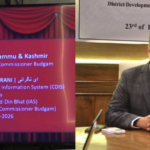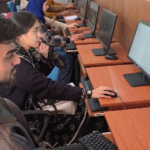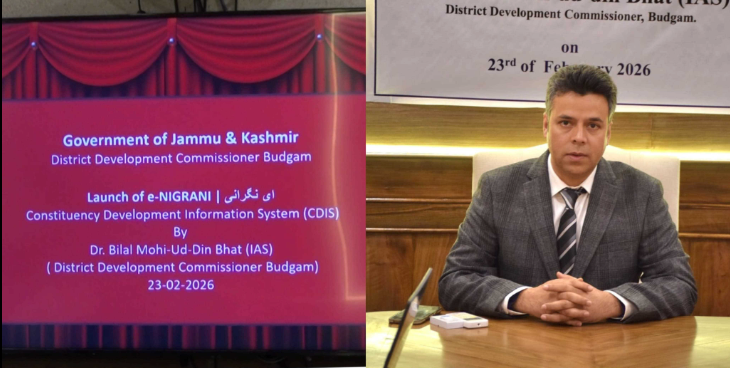In today’s fast-paced world, the integration of technology into governance processes is not just a luxury but a necessity. The launch of the e-governance module by Prof. Umesh Rai, VC of the University of Jammu, stands as a testament to the institution’s commitment to modernisation, efficiency, and environmental responsibility. At the forefront of this initiative is the reduction of paperwork. Traditionally, administrative tasks have been heavily reliant on paper, leading to the indiscriminate felling of trees. By transitioning to electronic documentation, the university is not only conserving precious natural resources but also mitigating its environmental footprint. This move aligns with global efforts to combat deforestation and climate change, positioning the university as a responsible steward of the environment. Beyond its ecological benefits, e-governance brings about a paradigm shift in the way administrative processes are conducted. Students and employees no longer need to navigate the labyrinth of office bureaucracy; instead, they can accomplish tasks from the comfort of their homes. This not only enhances convenience but also promotes work-life balance, reducing stress and improving overall well-being. Moreover, remote accessibility fosters inclusivity, enabling individuals with diverse needs and circumstances to participate fully in university affairs. Central to the e-governance framework is the principles of accountability, transparency, and efficiency. Stakeholders can now track the progress of their files in real-time, gaining insights into decision-making processes and identifying areas for improvement. By fostering a culture of openness and feedback, the university cultivates trust and confidence among its constituents, strengthening its institutional integrity. Furthermore, the digitalization of administrative processes streamlines operations, reducing bureaucratic inefficiencies and enhancing productivity. Tasks that once took days or weeks to complete can now be accomplished with a few clicks, allowing resources to be allocated more effectively towards core academic and research activities. This newfound efficiency not only benefits the university but also contributes to the overall advancement of knowledge and innovation. The e-governance module also empowers stakeholders to actively participate in governance processes. Through features such as online feedback mechanisms and digital objection filing, individuals can voice their opinions and contribute to decision-making in a meaningful way. This democratisation of governance promotes inclusivity and responsiveness, ensuring that the university remains responsive to the needs and aspirations of its community. The launch of the e-governance module by Prof. Umesh Rai, VC of the University of Jammu, represents a transformative leap towards efficiency, accountability, and environmental stewardship. By embracing technology, the university not only modernises its administrative processes but also reaffirms its commitment to sustainability and stakeholder welfare. As other institutions follow suit, the era of e-governance promises to usher in a new age of effective, transparent, and inclusive governance, laying the foundation for a brighter and more sustainable future.










